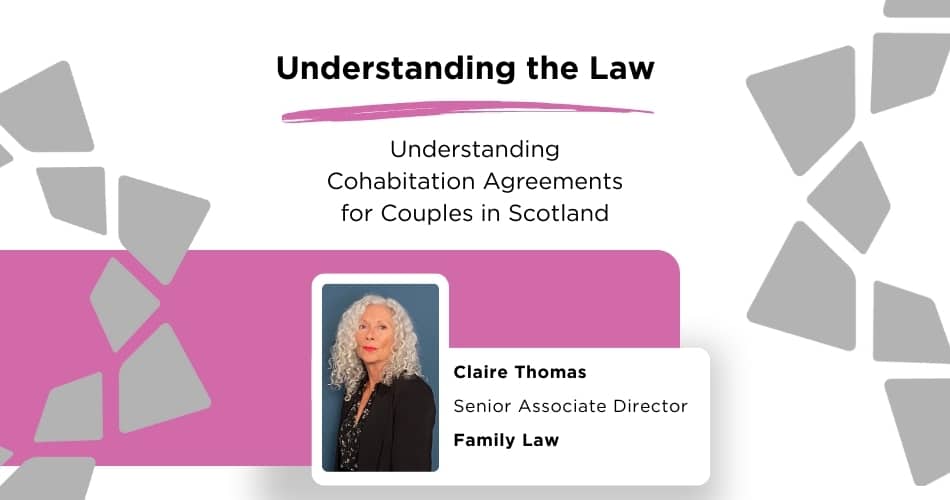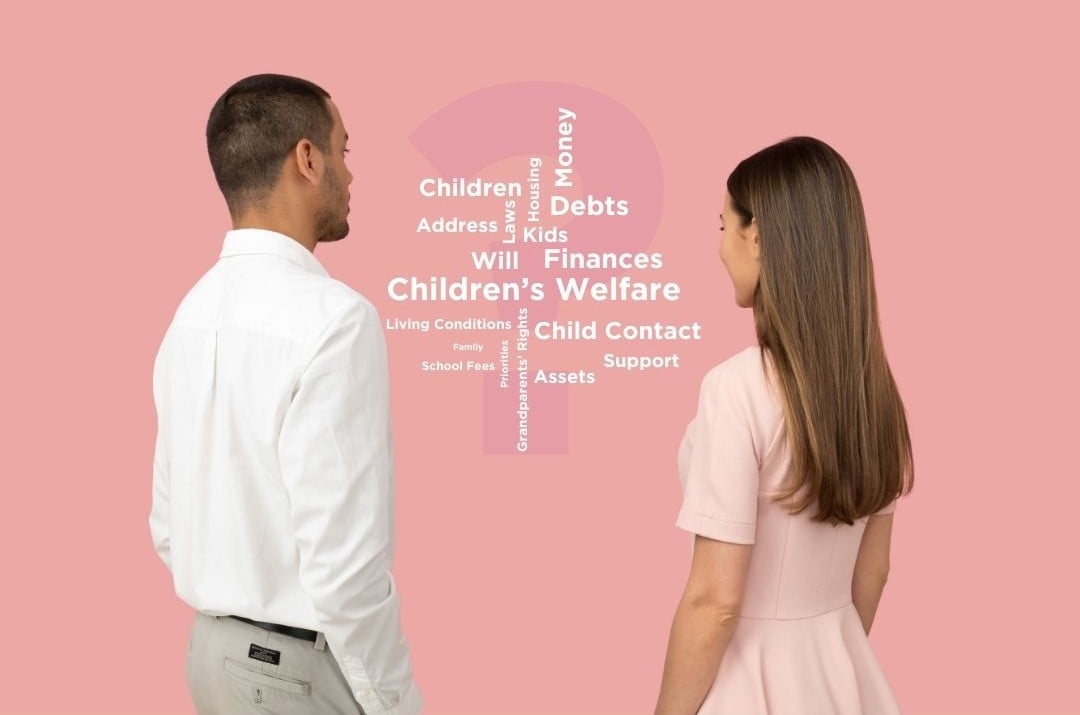
Relocation of Children: Part 2 – Relocation Outside the UK
In the post-pandemic era, as global travel springs to life again and remote work gains momentum, families are embracing the...
Scullion News & Resources

It is a feature of modern life that many couples choose to live together rather than marry or enter into a civil partnership. The Law of Scotland has recognised cohabitants rights since 2006 and provides a definition of the term cohabitant.
Cohabitants are a man and woman who are living together as if they were husband and wife or a same sex couple who are living together as if they were civil partners. Important legal consequences arise as a result of cohabitation.
If you are thinking of moving in with your partner and buying or renting a property together or are already living together, you should consider entering into a cohabitation agreement. A cohabitation agreement is a legally binding contract which is enforceable.
An agreement can make provision for parties’ financial responsibilities and payment of household bills, care arrangements for any children of the relationship and importantly what will happen to any property if the relationship ends. This provides certainty and protection for both parties.
Cohabitants do not have the same property rights as married couples therefore, entering into an agreement is advisable and can prevent litigation in the future in the event that the division of assets on separation cannot be agreed.
Unlike married couples or civil partners, if a couple live together in a home that is owned by one of them, the other party does not have an automatic right to remain in occupation of the property after the relationship has ended and would require to apply to the court to grant him or her occupancy rights.
Similarly, if one person provides a capital sum for the purchase of a home where they intend to live and title to the property is taken in the sole name of the other party, in the absence of a cohabitation agreement there is no presumption that those monies would be repaid to them if the property were to be sold.
The Family Law (Scotland) Act 2006 provides that one partner can make a financial claim against the other after they have separated. There is a strict one year time limit from the date of cessation of cohabitation for a court action to be raised and served on the other party. The cohabitant who raises the court action must show that they have suffered an economic disadvantage as a result of the cohabitation and their partner has gained an economic advantage.
If there is a child/children of the relationship under 16 years a former cohabitant may also make a separate financial claim in respect of the economic burden of caring for the child/ children.
In contrast to married couples/ civil partners a cohabitant cannot ask the court to for the transfer of title to a jointly owned property into their sole name nor can they ask for aliment or a periodical allowance to be paid to them after cohabitation ends.
It should also be borne in mind that any award of a capital sum is at the discretion of the Court. In short to protect your rights a cohabitation agreement is essential
In the event that a dispute does arise in relation to your circumstances or you need a cohabitation agreement, then it is recommended that you instruct an experienced family law solicitor to assist you to resolve this.
Our family law team are here for you during this emotionally challenging and legally complex area. Please contact us if you are affected by any of these issues. Our Family Law Team is here to help. Claire Thomas, Associate Director in the Family Law team, prepared this article.
Claire has extensive experience in dealing with all aspects of Family law including financial provision in high net-worth divorce cases in the Sheriff Court and Court of Session, cohabitation claims and complex residence/contact disputes
The content of this article is for information only, is not intended to be construed as legal advice, and should not be treated as a substitute for specific advice. Scullion LAW accepts no responsibility for the content of any third-party website to which this article refers.

In the post-pandemic era, as global travel springs to life again and remote work gains momentum, families are embracing the...

Any separation from a partner or spouse is a difficult time for everyone, regardless of the circumstances. Even amicable separations...

Divorce often revolves around asset division, but pension rights are frequently overlooked. Recent studies reveal this critical oversight, with many...